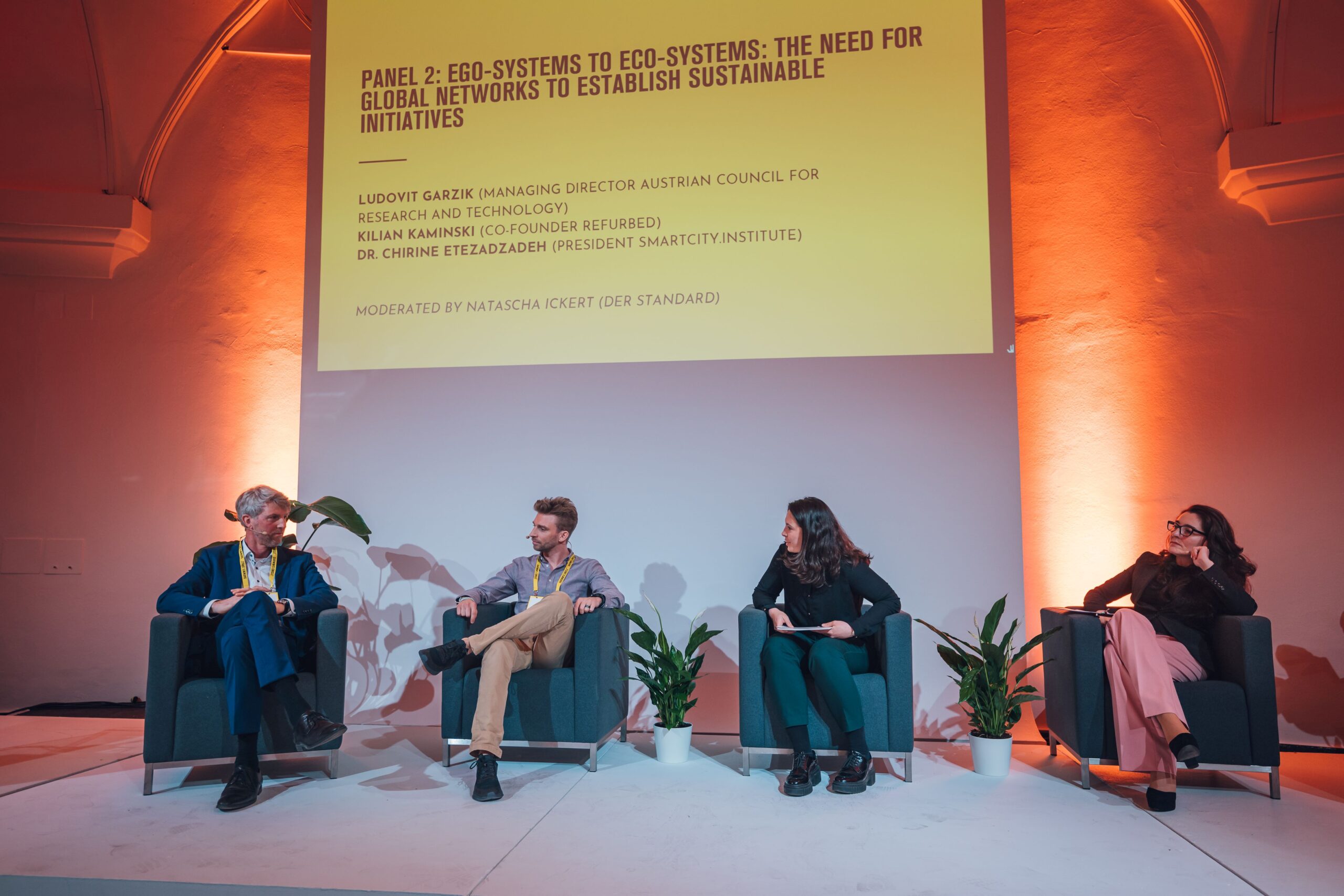In a context where the need to adopt sustainable measures becomes increasingly pressing, events such as “Vienna Tech for Green” emerge as key meeting points. On this occasion, Huawei, in collaboration with Darwin’s Circle, has led a space for dialogue and innovation that has brought together a wide diversity of actors: from international companies to start-ups, including researchers and government leaders. The objective: to explore the challenges and opportunities presented by the search for a more sustainable future.
Technology at the Service of the Planet
The opening speech, delivered by Claudia Plakolm, Secretary of State for Digitalisation, underlined the importance of collaboration in this common undertaking. In a world where shared responsibility is key, Austria stands out as an example, allocating considerable resources to green transformation initiatives. Plakolm emphasized that international collaboration is essential, and events like Vienna Tech for Green are powerful catalysts to this end.
Radoslaw Kedzia, Senior Vice President of Huawei’s European Region, added a crucial perspective by highlighting the transformative role of Information and Communication Technology (ICT) infrastructures in sustainability. Digitalization not only increases efficiency in all industries, but also reduces carbon emissions and strengthens the resilience of supply chains. From this perspective, ICTs become fundamental pillars for the construction of sustainable infrastructures at a global level.
Collaboration and Adaptability: Keys to Success
The vision shared during the event underscored the importance of multi-stakeholder collaboration. Governments, industry, communities and civil society must join forces to develop and implement sustainable strategies. Sustainable infrastructure must not only reduce its environmental impact, but also guarantee its long-term adaptability, thus ensuring a greener and more resilient future.
Andreas Rudas, president of Arthur D. Little, emphasized the need for innovation and support for companies, especially small and medium-sized ones, in the adoption of Artificial Intelligence (AI) to promote sustainability. This call to action resonates with the idea that technology, when used responsibly, can be a powerful driver for positive change.
Preparing for the Future: Action Now
Chirine Etezadzadeh, founder and president of SmartCity.institute, urged cities to act decisively in implementing climate change adaptation and security measures. She highlighted the importance of integrating natural and technical solutions to address current and future challenges. Her call to action highlights the need for collective and proactive action to confront the challenges that lie ahead.

Conclusions: A Sustainable Future is Possible
In summary, the “Vienna Tech for Green” has served as a platform for the convergence of ideas and actions towards a more sustainable future. Collaboration, innovation and resilience are the pillars on which we must build infrastructures that not only meet our present needs, but also protect the legacy for generations to come. On this journey towards sustainability, technology, when implemented with responsibility and a long-term vision, becomes an invaluable ally. With joint effort and shared commitment, we can forge a path to a greener, more prosperous world for all.
About Huawei: Leading Digital Transformation
Huawei, as a leading global provider of Information and Communication Technology (ICT) solutions, is committed to driving digitalization and connecting the world intelligently. Through its focus on customer-centric innovation and collaboration with strategic partners, Huawei seeks to create a more connected and enriching future for individuals, households and organizations around the world. With a strong foundation in research and development, Huawei continues to be a key player in global digital transformation, working towards a more sustainable and equitable future for all.
In conclusion, the “Vienna Tech for Green” event represents a significant step towards building a more sustainable future. Collaboration, innovation and collective action are essential in this journey towards a greener and more resilient world. With the commitment and determination of all the actors involved, we can achieve positive and lasting change for the benefit of present and future generations.
Ambientum Editorial
















Add Comment